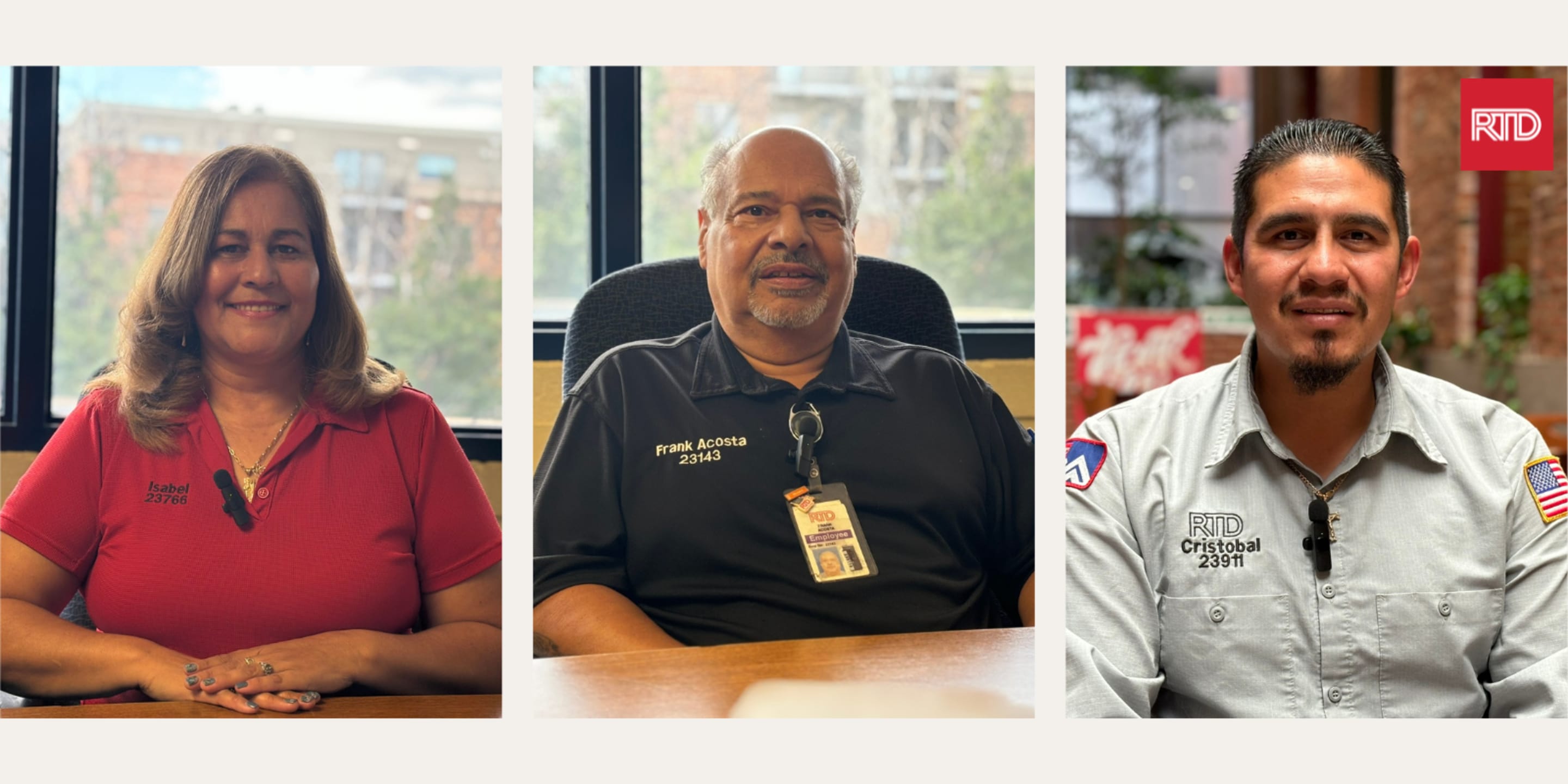
RTD honors Hispanic-Latine Heritage Month
The United States is a nation of immigrants, a fact reflected in its diverse history. From the Pilgrims in the 17th century to waves of newcomers seeking opportunity in the 19th and 20th centuries, immigrants have profoundly shaped American identity.
One of the many groups that shaped the U.S. is the Hispanic-Latine communities. For a time, the most common term was "Hispanic," which refers to someone with ancestry from a Spanish-speaking country, excluding, for example, Brazil, where Portuguese is spoken. Nowadays, to be more inclusive, the term "Latine" has been added, which refers to someone with origins from Latin America, including people from the Caribbean, Mexico, Central America and South America.
As Latin languages are gendered, nouns are categorized as feminine (ending in “a”) or masculine (ending in “o”). The “e” is used to provide a more inclusive option.
Thus, National Hispanic-Latine Heritage Month, observed from Sept. 15 to Oct. 15, highlights the historical and cultural contributions of Hispanic and Latine communities, celebrating their vital role in this ongoing narrative.
The observance began in 1968 as Hispanic Heritage Week and was expanded to a month-long celebration in 1988. Sept. 15 is significant as it marks the independence anniversaries of Costa Rica, El Salvador, Guatemala, Honduras, and Nicaragua, while Mexico and Chile celebrate their independence on Sept. 16 and 18, respectively. Many Latin American countries also celebrate their independence days outside of this month.
Latinos total over 62 million individuals in the U.S. in 2022, and RTD proudly benefits from a diverse team that advances the agency’s commitment to community-focused service. Serving an area population of more than 3 million people, RTD offers over 1,000 wheelchair lift-equipped buses and hundreds of rail vehicles, providing transportation to over 65 million riders annually.